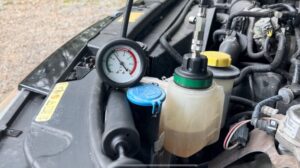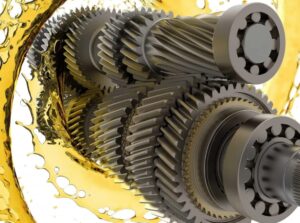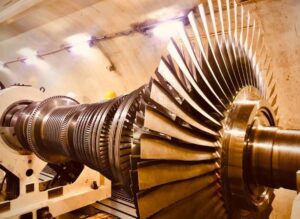What Is Diesel Fuel Oil: Benefits & Types of Diesel Fuel
What is diesel oil?
Diesel oil uses is one of the most crucial energy sources powering global industries, from transportation and agriculture to construction, power generation, and shipping. Its efficiency, reliability, and ability to produce high torque and power make it the preferred fuel for heavy-duty machinery, trucks, buses, and generators.
But what exactly is diesel fuel oil? What are its benefits, types, and environmental impact? And how is the diesel industry evolving with cleaner technologies?
How Diesel Fuel Is Made
The production of diesel fuel involves multiple refining processes, including:
Fractional Distillation: Crude oil is heated and separated into different components based on boiling points. Diesel fuel is extracted at a mid-range temperature.
Hydrotreating: This process removes sulfur and other impurities, producing cleaner-burning diesel.
Blending: Diesel fuel is often mixed with additives to improve performance, reduce emissions, and prevent gelling in cold weather.
Diesel vs. Gasoline – Key Differences
| Feature | Diesel Fuel | Gasoline |
|---|---|---|
| Ignition System | Compression ignition | Spark ignition |
| Energy Density | Higher (more power per liter) | Lower |
| Fuel Economy | More fuel-efficient | Less efficient |
| Lubrication | Acts as a lubricant | Lacks lubricating properties |
| Safety | Less flammable | More flammable |
| Engine Durability | Longer lifespan | Shorter lifespan |
These characteristics make diesel ideal for heavy-duty applications where durability and efficiency matter.
Benefits of Diesel Fuel Oil
10 uses of diesel offers multiple advantages uses of diesel oil making it the preferred choice for industrial and transportation needs.
Higher Fuel Efficiency
Diesel engines are typically 30-40% more fuel-efficient than gasoline engines. This is because diesel fuel has a higher energy density, meaning it produces more energy per liter.
Greater Power and Torque
Diesel engines generate more torque (rotational force) at lower RPMs. This allows trucks, buses, and machinery to haul heavy loads with ease, making diesel the go-to choice for commercial transportation.
Longer Engine Lifespan
Due to their simpler design and robust build, diesel engines tend to last twice as long as gasoline engines. Many heavy-duty diesel engines can exceed 500,000 to 1,000,000 miles with proper maintenance.
Lower Maintenance Costs
Since diesel engines do not require spark plugs or high-voltage ignition systems, they have fewer components that can fail. This reduces the frequency and cost of maintenance.
Safer Fuel Handling and Storage
Diesel oil facts is less volatile and less flammable than gasoline, making it safer to store and transport. It has a higher flashpoint (the temperature at which it ignites) compared to gasoline, reducing fire risks.
Widely Available and Cost-Effective
Diesel fuel is readily available worldwide and remains a cost-effective option for businesses relying on long-haul transportation, marine shipping, and industrial machinery.
Application of Diesel Fuel
Heavy Trucks and Buses: Diesel engines power heavy trucks and buses due to their fuel efficiency, torque, and durability, ideal for long-distance and high-load transport.
- Trains: Diesel-electric locomotives are widely used in rail transportation, offering a balance of power, efficiency, and range.
- Tractors and Harvesters: Diesel engines power agricultural machinery, which requires high torque and reliability for tasks like plowing, harvesting, and hauling.
- Diesel Generators: Used as backup or emergency power sources in hospitals, businesses, and residential areas due to diesel’s reliability and stability.
- Small Aircraft: Some small, modern aircraft are being powered by diesel engines for better fuel efficiency, range, and cost-effectiveness than traditional aviation fuel.
Different Types Of Diesel Fuel

Diesel fuel oil comes in several formulations, each designed for specific engines and environmental conditions.
Ultra-Low Sulfur Diesel (ULSD)
ULSD is one of types of diesel oil the standard diesel fuel in North America, Europe, and many other countries. It contains less than 15 ppm (parts per million) of sulfur, reducing sulfur dioxide (SO₂) emissions that contribute to acid rain and air pollution.
✅ Required for all modern diesel vehicles.
✅ Reduces engine wear and extends component life.
✅ Compatible with advanced diesel particulate filters (DPFs).
Biodiesel (B100, B20, B5 Blends)
Biodiesel is a renewable diesel alternative made from vegetable oils, animal fats, or recycled cooking oils. It is blended with conventional diesel in different ratios:
B100 (100% biodiesel) – Pure biodiesel, not commonly used in cold climates.
B20 (20% biodiesel, 80% petroleum diesel) – Reduces emissions while maintaining compatibility with diesel engines.
B5 (5% biodiesel, 95% petroleum diesel) – Most common blend, widely accepted by engine manufacturers.
✅ Renewable and biodegradable.
✅ Reduces greenhouse gas emissions.
✅ Improves lubrication for older diesel engines.
Synthetic Diesel (GTL, CTL Diesel)
Produced from natural gas (GTL – Gas-to-Liquid) or coal (CTL – Coal-to-Liquid), synthetic diesel burns cleaner than traditional petroleum-based diesel.
✅ Reduces particulate emissions.
✅ Compatible with existing diesel engines.
✅ Higher purity and fewer impurities.
Winter Diesel (Cold-Weather Diesel)
Winter diesel is specially formulated with anti-gelling additives to prevent wax crystallization in freezing temperatures.
✅ Ensures proper fuel flow in cold conditions.
✅ Prevents clogging of fuel filters.
✅ Essential for diesel vehicles operating in sub-zero temperatures.
Impact of Diesel Fuel
Diesel fuel has both advantages and challenges regarding environmental sustainability.
Diesel Emissions & Pollution Concerns
Diesel engines produce:
Nitrogen oxides (NOx) – Contribute to smog and acid rain.
Particulate matter (PM2.5 & PM10) – Harmful microscopic pollutants affecting air quality.
Carbon dioxide (CO₂) – A greenhouse gas contributing to climate change.
Diesel Engine Emission Control Technologies
To reduce pollution, modern diesel engines are equipped with:
✅ Diesel Particulate Filters (DPFs) – Capture fine particulates.
✅ Selective Catalytic Reduction (SCR) – Converts NOx into nitrogen and water.
✅ Exhaust Gas Recirculation (EGR) – Reduces NOx emissions by lowering combustion temperatures.
Renewable Diesel & Future Alternatives
Governments and industries are investing in cleaner alternatives like:
✔ Hydrotreated Vegetable Oil (HVO) – A low-emission renewable diesel.
✔ Hydrogen-Diesel Blends – Co-combustion of hydrogen with diesel to reduce emissions.
✔ E-fuels (Synthetic Fuels) – Produced using renewable energy sources.
Future of Diesel Fuel & Innovations
The diesel fuel industry is evolving to meet stricter emission regulations and sustainability goals.
Hybrid Diesel-Electric Vehicles
Hybrid diesel-electric technology is gaining traction in buses, trucks, and industrial equipment. Electric assistance improves fuel efficiency and reduces emissions.
Carbon-Neutral Diesel Fuels
New fuel formulations are being developed that capture CO₂ from the atmosphere, reducing net carbon emissions.
Next-Generation Engine Designs
Automakers are investing in advanced diesel engines that maximize fuel efficiency while minimizing environmental impact.
Final Thoughts
FAQs

Radiator Stop Leak UAE: Quick Fix for Vehicle Cooling System Leaks
Radiator Stop Leak UAE: Quick Fix for Vehicle Cooling System Leaks Discover More Introduction: The Unforgiving UAE Climate and Your Vehicle’s Lifeline The United Arab Emirates’ automotive landscape is defined by extremes. Ambient temperatures that regularly surpass 45°C (113°F), coupled with intense urban congestion and long, high-speed desert drives, create a perfect storm of thermal stress for every vehicle. In this environment, your engine cooling system is not merely a subsystem; it is the single most critical component preventing catastrophic engine failure.

What Type of Transmission Oil in UAE Does My Car Need? Your Complete Guide
What Type of Transmission Oil in UAE Does My Car Need? Your Complete Guide Discover More Navigating the vast, sun-baked highways of the United Arab Emirates—from the dynamic urban sprawls of Dubai and Abu Dhabi to the majestic desert dunes and the tranquil mountain passes of the Hajar range—places extraordinary mechanical and thermal stress on every component of your vehicle. While conscientious drivers often prioritize engine oil changes, the vital lifeblood safeguarding the transmission, the complex heart of your car’s

Guide to UAE Turbine Oil Selection Application & Management for Industrial Facilities
Guide to UAE Turbine Oil Selection, Application, and Management for Industrial Facilities Discover More In the hyper-competitive industrial landscape of the United Arab Emirates, where operational excellence directly translates to economic advantage, turbine lubrication represents a critical nexus of reliability engineering and strategic asset management. This comprehensive guide, developed with technical insights from Rumanza Lubricants, provides an unprecedented deep dive into the science, selection criteria, and life-cycle management of turbine oils specifically engineered for the extreme operating conditions of the

Synthetic vs. Mineral Hydraulic Oil in UAE : Which is Best for Your Operation?
Synthetic vs. Mineral Hydraulic Oil in UAE : Which is Best for Your Operation? Discover More Across the dynamic landscape of the United Arab Emirates—from the megaprojects of Dubai Marina to the intricate conveyor systems of Jebel Ali Port, from the massive hydraulic shovels in Al Dhafra quarries to the precision automated lines in Abu Dhabi’s industrial cities—the silent, powerful force of hydraulics is indispensable. These systems convert fluid power into monumental force and precise motion. At the core of

What is a Pour Point Depressant? | Benefits, Uses & How It Works Mechanism
What is a Pour Point Depressant? | Benefits, Uses & How It Works Mechanism Discover More In the intricate world of lubricant formulation, few additives play as critical yet understated a role in cold-weather operability as Pour Point Depressants (PPDs). These specialized chemical compounds are the linchpin that prevents machinery from seizing up when temperatures plummet. This in-depth guide goes beyond the basics, exploring the sophisticated chemistry, detailed mechanism, nuanced benefits, and practical considerations of PPDs. We will also examine the

Guide to Gasoline Engine Oils for UAE’s Extreme Climate: Engineering Peak Performance
Gasoline Engine Oils for UAE’s Extreme Climate: Engineering Peak Performance Discover More In the heart of the Arabian Peninsula, the United Arab Emirates stands as a testament to human ambition, with its engineering marvels and endless highways. Yet, this environment of soaring achievement is also one of the most punishing on Earth for machinery. For your vehicle—whether a nimble city sedan, a powerful family SUV, or a high-performance sports car—the UAE’s climate is a relentless adversary. The choice of engine

What are Polyol Ester Oils & Lubricants – Properties & Applications
What are Polyol Ester Oils & Lubricants – Properties & Applications Discover More In the intricate world of industrial machinery, automotive engines, and advanced refrigeration systems, the choice of lubricant is not merely a maintenance task—it’s a critical engineering decision. While conventional mineral oils have served us for over a century, the demands of modern technology require fluids that can perform under extreme pressure, temperature, and environmental stress. This is where synthetic lubricants, specifically Polyol Ester oils, come to the forefront.